Israel Establishes Full Ties With Bahrain, UAE At White House
Israel normalized relations with long-time foes Bahrain and the United Arab Emirates at the White House on Tuesday as President Donald Trump said similar US-brokered deals were close between the Jewish state and several other nations, including Saudi Arabia.
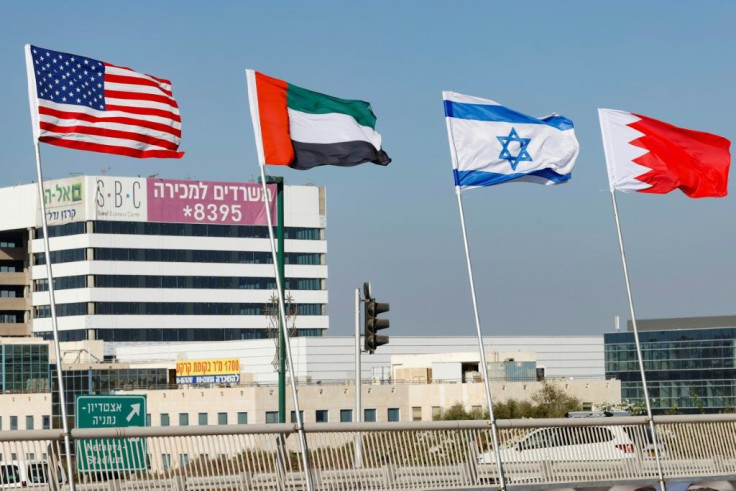
Israeli Prime Minister Benjamin Netanyahu and the foreign ministers of Bahrain and the UAE sealed the accords establishing full diplomatic ties with a ceremony on a flag-decorated White House South Lawn.
Hundreds of guests attended the event, which Trump is hoping will boost his reelection chances in November, but there were no handshakes to cement the historic agreements in the wake of the coronavirus pandemic.
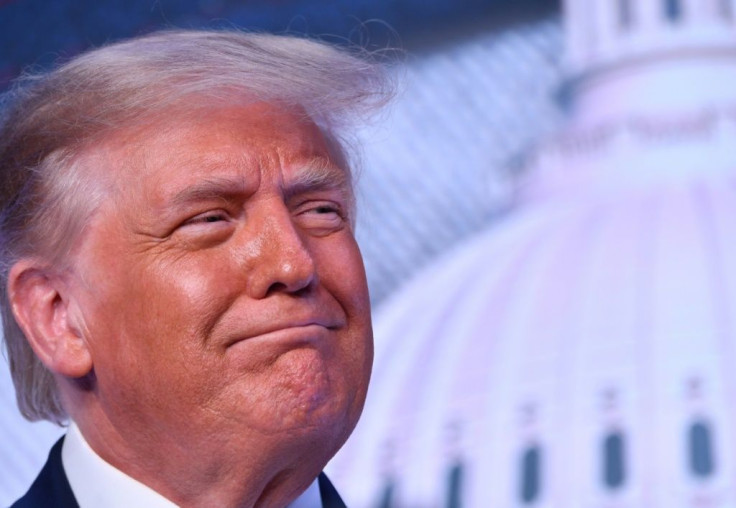
Bahrain and the UAE are the first Arab nations to establish relations with Israel since Egypt in 1979 and Jordan in 1994, and Trump hailed it as a "historic day for peace."
"After decades of division and conflict we mark the dawn of a new Middle East," he said.
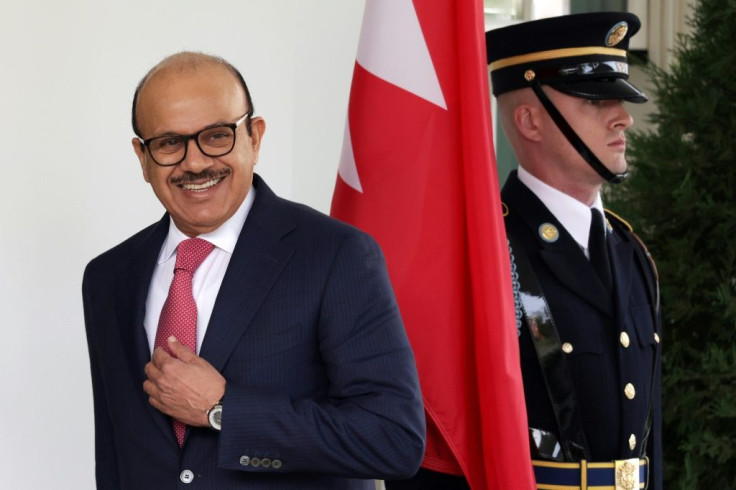
Trump said the agreements, which have been denounced as a "betrayal" by the Palestinians, "will serve as the foundation for a comprehensive peace across the entire region."
Speaking later to reporters, he said Israel would enter into similar deals with up to nine other countries, including regional power Saudi Arabia.
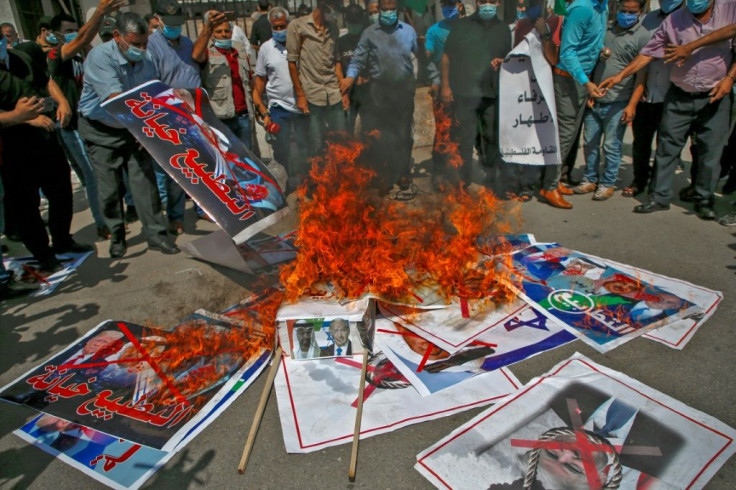
Netanyahu said the day heralded "a new dawn of peace."
"Ultimately it can end the Arab-Israeli conflict once and for all," he added.
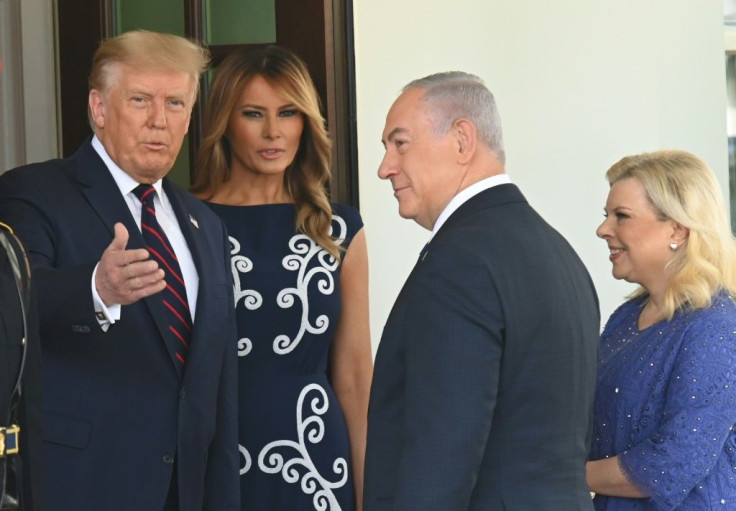
"To all of Israel's friends in the Middle East... I say as-salaam alaikum, peace unto thee, shalom."
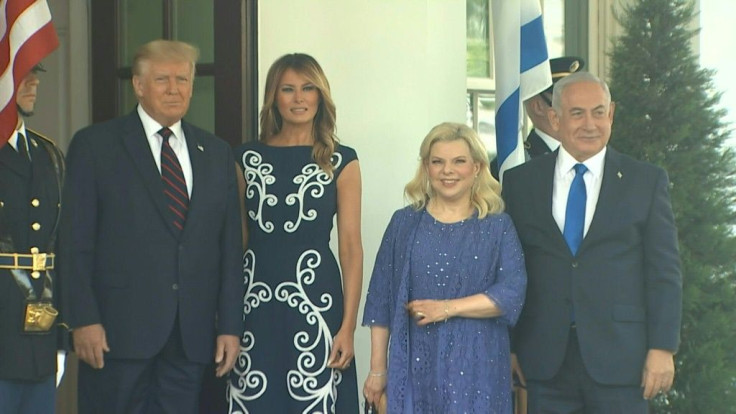
Neither Trump nor Netanyahu made any reference to the Palestinians during their remarks, and Palestinian leader Mahmud Abbas said Tuesday that only an Israeli withdrawal from its occupied territories could bring peace to the Middle East.
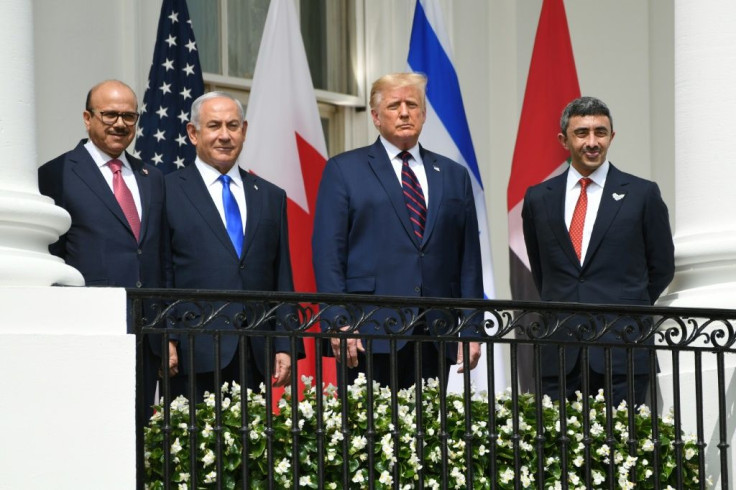
"Peace, security and stability will not be achieved in the region until the Israeli occupation ends," Abbas said.
As the accords were being signed in Washington, rockets were fired into Israel from the Gaza Strip, injuring two people and prompting Israeli air strikes on the territory.
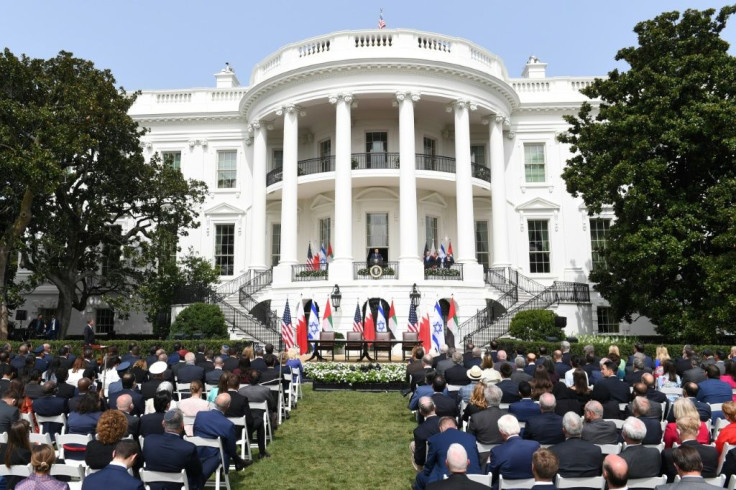
For the Middle East, the deals mark a distinct shift in a decades-old status quo where Arab countries have tried to maintain unity against Israel over its treatment of the stateless Palestinians.
Both the UAE and Bahrain foreign ministers made a point of mentioning the Palestinians in their remarks before the signing ceremony.
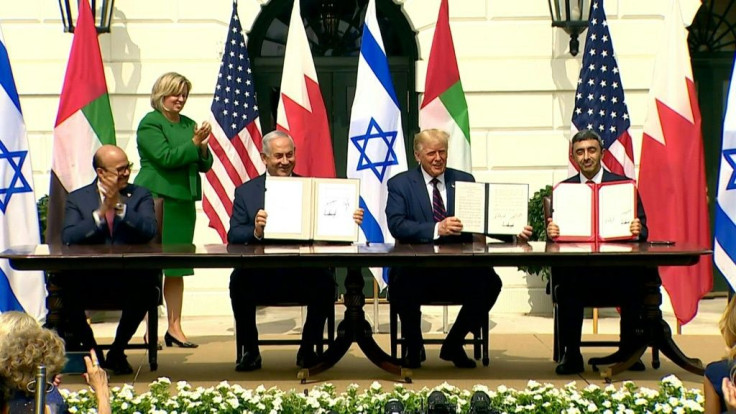
"Thank you for choosing peace and halting the annexation of Palestinian territories," UAE Foreign Minister Abdullah bin Zayed Al-Nahyan told Netanyahu. "I stand here today to extend a hand of peace."
Bahrain Foreign Minister Abdullatif al-Zayani said a "just, comprehensive and enduring two-state solution to the Palestinian-Israeli conflict" would be the "bedrock" for lasting Middle East peace.
Trump, speaking to Fox News ahead of the ceremony, said the agreements would put pressure on the Palestinians to also negotiate or face being "left out in the cold."
"The Palestinians will ultimately come in too," he said.
"And you're going to have peace in the Middle East without being stupid and shooting everybody, and killing everybody, and having blood all over the sand."
Trump predicted that Iran -- a regional rival to Bahrain and the UAE -- would seek to "make a deal" with the United States if he is reelected.
All the four countries at the White House share a common hostility to Iran, which Trump has put under crippling economic and diplomatic pressure.
The thaw will give Israel and its two new Arab partners a big economic opening, just when they are looking to rebuild after the international slowdown triggered by the pandemic.
And it allows Trump to enjoy the optics of presiding over a historic breakthrough less than 50 days before the November 3 election, which opinion polls suggest he is currently on course to lose.
It also provides a dose of good news coverage to Netanyahu, a close Trump ally who faces a corruption trial and criticism over his handling of the coronavirus pandemic.
The UAE, meanwhile, has been using the negotiations as part of its campaign to pressure Washington to sell it the cutting edge F-35 warplane.
Trump said Tuesday he was willing to sell the warplanes to the UAE despite Israeli opposition.
Hundreds of Palestinians protested ahead of the signing ceremony.
Several dozen pro-Palestinian demonstrators also staged a protest outside the White House.
"This is a backstab to the Palestinian people," said Zeina Hutchison, one of the rally's organizers.
© Copyright AFP 2024. All rights reserved.





















